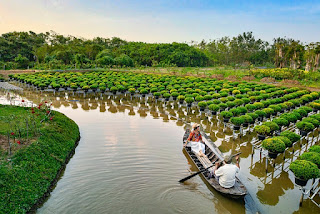
What is Water and Why is it Essential for Sustainable Living?
Water is a fundamental resource for all life on Earth, but it’s often something we take for granted. Simply put, water is a liquid compound made up of two hydrogen atoms and one oxygen atom (H₂O). It’s crucial for drinking, agriculture, and maintaining ecosystems. But did you know that its importance goes far beyond quenching thirst? Let’s dive into why water is so essential, especially when it comes to building self-sustainable cities.
The Basics of Water's Role
Water is involved in countless processes: from regulating temperatures through sweating and evaporation to enabling plant growth through irrigation. It also helps break down and transport nutrients in our bodies and ecosystems. Without water, life as we know it would not be possible.
Water in Sustainable Living
In the context of sustainable living, managing water wisely is key. This means not just conserving water but also ensuring it's used efficiently and responsibly. In a self-sustainable city, water management includes capturing rainwater, recycling greywater, and using water-efficient fixtures.
Case Study: Rainwater Harvesting in Urban Areas
Take the example of a city like Bangalore, India, which faces water shortages despite being a bustling urban area. Many buildings and homes have adopted rainwater harvesting systems, capturing and storing rainwater for use in irrigation and even drinking. This practice significantly reduces dependence on external water sources and helps in managing the city’s water supply more sustainably.
Case Study: Greywater Recycling in California
In drought-prone California, greywater recycling systems are used to collect water from sinks, showers, and washing machines. This recycled water is then used for irrigation and flushing toilets, drastically reducing the overall water consumption of households.
Water's Role in Our Self-Sustainable City
In our self-sustainable city project, water management is a top priority. We incorporate rainwater harvesting systems to collect and store rainwater for various uses, from irrigation to household needs. We also use greywater recycling to ensure that every drop of water is used efficiently. Additionally, we implement drought-resistant landscaping and water-efficient appliances to further minimize water usage.
By integrating these water-saving measures, our self-sustainable city not only conserves a precious resource but also reduces the environmental impact of water consumption. This approach ensures that we have a reliable and sustainable water supply, supporting both the residents and the local ecosystem.
What are your thoughts on water management in sustainable living? Do you have any questions or ideas to share? Drop them in the comments below—let’s discuss how we can all contribute to a more water-wise future!
![Self-Sustainable City - Ramakrishna Surathu [Official Website]](https://blogger.googleusercontent.com/img/a/AVvXsEivh2bAyNCG-DxYf4p_lHLcFQx1i8MvbBv91UgzKqAFrNMhT8xW-fwxgNJTdtojgb9aYXiG9EdNYLo8tNmtaakyq-zmnaCeeUGMdpvJ8iOaVzd2tSKEC2UrUXzFJa952LPF-OngfPenpbFOj7b8AcbYtPGSng6xbGr-_NwEIRpXZg_QdKLGRMGeg5pWmtaQ=s1280)
Through this post, I know that your good knowledge of playing with all the pieces was very helpful. I notify you that this is the first place where I find issues I've been searching for. You have a clever yet attractive way of writing. Wastewater Treatment Company in India
ReplyDeleteThank you for your kind words and for taking the time to share your thoughts! I'm glad the article resonated with you and addressed some of the topics you were exploring. Water management is such a vital part of sustainability, and it's great to connect with professionals from the wastewater treatment sector like your team at UY Trienviro Pvt. Ltd. I appreciate your insights and would love to explore ways we can exchange ideas or collaborate in the future to promote smarter water use and sustainable living.
DeleteLooking forward to continuing the conversation!
Share great information about your blog, Blog is helpful for us. We read your blog and shared the most useful information in the blog. Thanks for sharing your blog here. Waste water Management Company
ReplyDeleteI left a reply and am waiting reply to your comment. Waste water Management Company
ReplyDelete